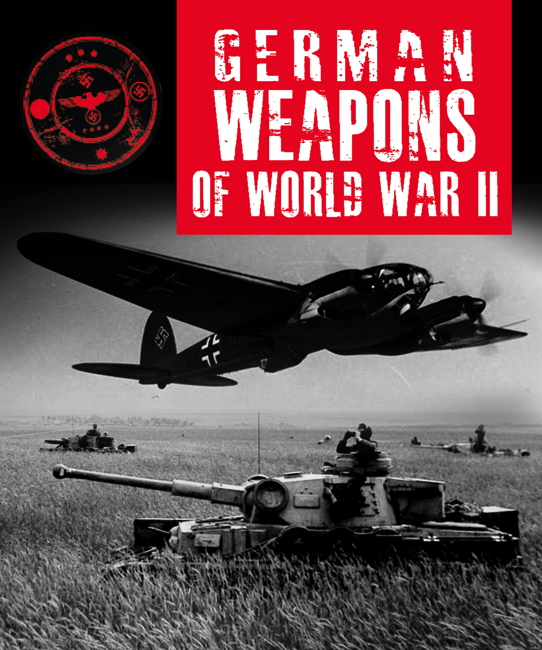The Rise and Fall of the Third Reich
On 1 September, 1939, German forces stormed into Poland, precipitating nearly six years of savage, unrelenting warfare that would leave large areas of the world in ruins. For the first three years of the conflict, German forces seemed invincible. The... Read moreRead less
On 1 September, 1939, German forces stormed into Poland, precipitating nearly six years of savage, unrelenting warfare that would leave large areas of the world in ruins. For the first three years of the conflict, German forces seemed invincible. The swift victory in Poland was followed by the rapid conquest of Denmark and Norway, bringing the Phoney War to an abrupt end. The seeming invincibility of German arms was further strengthened when, in May 1940, the Germans launched their Blitzkrieg in the west, overwhelming Holland and Belgium in a matter of days, driving the British Expeditionary Force back across the Channel and completing their campaign in France within a month.
The victory of the Royal Air Force over the Luftwaffe in the high summer of 1940 proved that the Germans could be beaten, and the Royal Navy’s early victories in the Mediterranean showed the weakness of Germany’s Axis partner, Italy, whose performance in the Balkans and North Africa was little short of disastrous. The Italians’ lack of performance was one of the factors that compelled the Germans to invade Yugoslavia and Greece, in order to secure their southern flank before launching an invasion of the Soviet Union in June 1941. This was to prove the biggest mistake of all, but in the short term the German forces swept from one victory to another, their armored divisions storming across the vast Russian plains to within sight of Moscow.
In December 1941 the United States entered the war, but Britain and her new ally, Soviet Russia, continued to suffer reverses. Only towards the end of 1942, with the victory in the desert at El Alamein and the isolation of the German Sixth Army at Stalingrad, did the first serious problems appear for the Nazi war machine.
The year 1943 saw the tide of war turn decisively against the Third Reich. Germany’s reverses began with the Anglo-American invasion of North Africa in November 1942, culminating in the expulsion of Axis forces from Tunisia, and continued with the annihilation of the Sixth Army at Stalingrad. In the north, the siege of Leningrad was lifted, while at sea the combination of Allied air and naval power was slowly but surely winning the battle of the Atlantic. In July 1943, the Allies struck in Sicily, an invasion that coincided with the decisive armoured battle of Kursk, on the Russian front. With Sicily quickly secured, Allied forces moved on to establish a foothold on Italy, but there were to be no quick and easy victories here. The Italian campaign soon turned into a remorseless slogging match, and remained so until the end of the war.
In 1944, while the Red Army began the relentless advance that would take it all the way to Berlin, the Allies launched their long-awaited invasion of western Europe, the initial landing in Normandy being followed by a second D-Day in southern France. Despite their increasingly desperate plight, the Germans continued to fight doggedly, frustrating the Allied attempt to force a passage of the Rhine at Arnhem in September 1944 and launching a major counter-attack through the Ardennes in December. However, by March 1945 the western Allies were across the Rhine, and in the east the Russians were on the river Oder. In April, the siege of Berlin began. By the end of the month Hitler had committed suicide, and on 8 May Germany signed an unconditional surrender. The ‘Thousand-Year Reich’ had lasted just 12 years.
Rise and Fall series
Format: 305 x 237mm
Extent: 384pp
Word count: 100,000
Illustrations: 100 col maps, 140 col photos
There is no Amber trade edition currently available.
Buy now:









![The Art of War Illustrated [Chinese Bound]](https://www.amberbooks.co.uk/wp-content/uploads/2018/08/ArtofWarIllusUKtrade_thumb.jpg)









